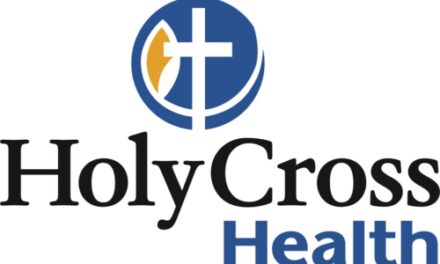 In todays marketplace, businesses from all sectors, especially the healthcare industry, are experiencing shrinking margins as competition, the cost of doing business, and insurance premiums increase. But it is not only shrinking margins that are of concern to a hospital administrator; it is also the cash flow crunch caused by increasing receivables and the inevitable bad debt. The combination of these two forces places a tremendous strain on a business in its efforts to grow and succeed.
In todays marketplace, businesses from all sectors, especially the healthcare industry, are experiencing shrinking margins as competition, the cost of doing business, and insurance premiums increase. But it is not only shrinking margins that are of concern to a hospital administrator; it is also the cash flow crunch caused by increasing receivables and the inevitable bad debt. The combination of these two forces places a tremendous strain on a business in its efforts to grow and succeed.
The acceptance of credit cards helps to alleviate the monetary constraints placed on a hospital profit and loss statement. However when working with a credit card company, how do you know if you are getting the best possible deal? Do you feel comfortable that you asked the right questions and received the right answers? Do you feel comfortable that what you are being told is what will occur as opposed to fearing the bait and switch? The processing industry can be very complicated and too often hospital administrators, through no fault of their own, dont understand the pitfalls. Just like we need to maintain our health by exercising regularly, medical practices must exercise their financial acumen when analyzing whether they have the best “credit card program” for their particular organization.
Yes, the word “program” is critical as there are different programs and solutions depending upon the needs of an organization. What is your rate is the most common question asked by businesses already accepting credit cards or looking to accept credit cards for the first time. Yet the “base rate” is only part of the equation. The credit card industry has numerous “hidden costs” which can, and will, inflate credit card fees. Unfortunately most hospitals are unaware of the potential pitfalls and how the additional fees are adversely affecting the bottom line.
Visa and MasterCard maintain different rate structures for different types of cards and based upon how a transaction is processed. Did you know that there is a higher fee structure for manually entered transactions? It is therefore imperative to understand the way a transaction is conducted and the effect on your practice. For instance, are the majority of your transactions swiped (card and cardholder present) or manually entered (card and cardholder not present?) and should you be set up as a swipe account or manually entered account?
For example, a business that is set up to mainly swipe cards and is being charged a rate of 1.76%, could pay up to 3.50% if they were to manually enter the same transaction and did not provide the information required by Visa and MasterCard. Conversely, a practice set up to manually enter its transactions could be charged a rate as low as 2.25%. Did that get your attention? Many credit card companies will offer a low introductory rate, which to a layperson will seem unbelievable. However, what will be unbelievable will be the “downgrades” or penalties that a practice will be paying, without even realizing it. Other additional issues to be addressed besides a low base rate, are transaction fees for third party cards (Amex, Discover), the percent of manually entered transactions, number of business cards accepted, monthly fees, batch fees, etc. As a result of the additional fees, in order to run your practice in a financially astute manner, you must know your “effective rate” (takes into consideration all charges) vs. your “base rate”, the most common rate expected.
Two issues that are rarely raised are funding and collection of fees. Do you know how long it takes from the time you settle your batch until your money is deposited into your bank account? Why should you have to wait three days to get your money, doesnt 24 hours sound better? Guaranteed 24 hour funding is available. When is your discount fee taken, daily or monthly? Would it be easier to reconcile your bank statement if the funds deposited were gross? Think about the savings on interest, the float of your money plus increased cash flow if your fees were removed at the end of the month? It certainly adds up and these issues will help greatly with your cash management.
Accepting credit cards is a winning proposition for your hospital, but care must be taken. There are many good companies in the marketplace, so do your best to align yourself with one that wants to build a relationship and partnership.
Post Views: 1,014
 In todays marketplace, businesses from all sectors, especially the healthcare industry, are experiencing shrinking margins as competition, the cost of doing business, and insurance premiums increase. But it is not only shrinking margins that are of concern to a hospital administrator; it is also the cash flow crunch caused by increasing receivables and the inevitable bad debt. The combination of these two forces places a tremendous strain on a business in its efforts to grow and succeed.
In todays marketplace, businesses from all sectors, especially the healthcare industry, are experiencing shrinking margins as competition, the cost of doing business, and insurance premiums increase. But it is not only shrinking margins that are of concern to a hospital administrator; it is also the cash flow crunch caused by increasing receivables and the inevitable bad debt. The combination of these two forces places a tremendous strain on a business in its efforts to grow and succeed. 


























